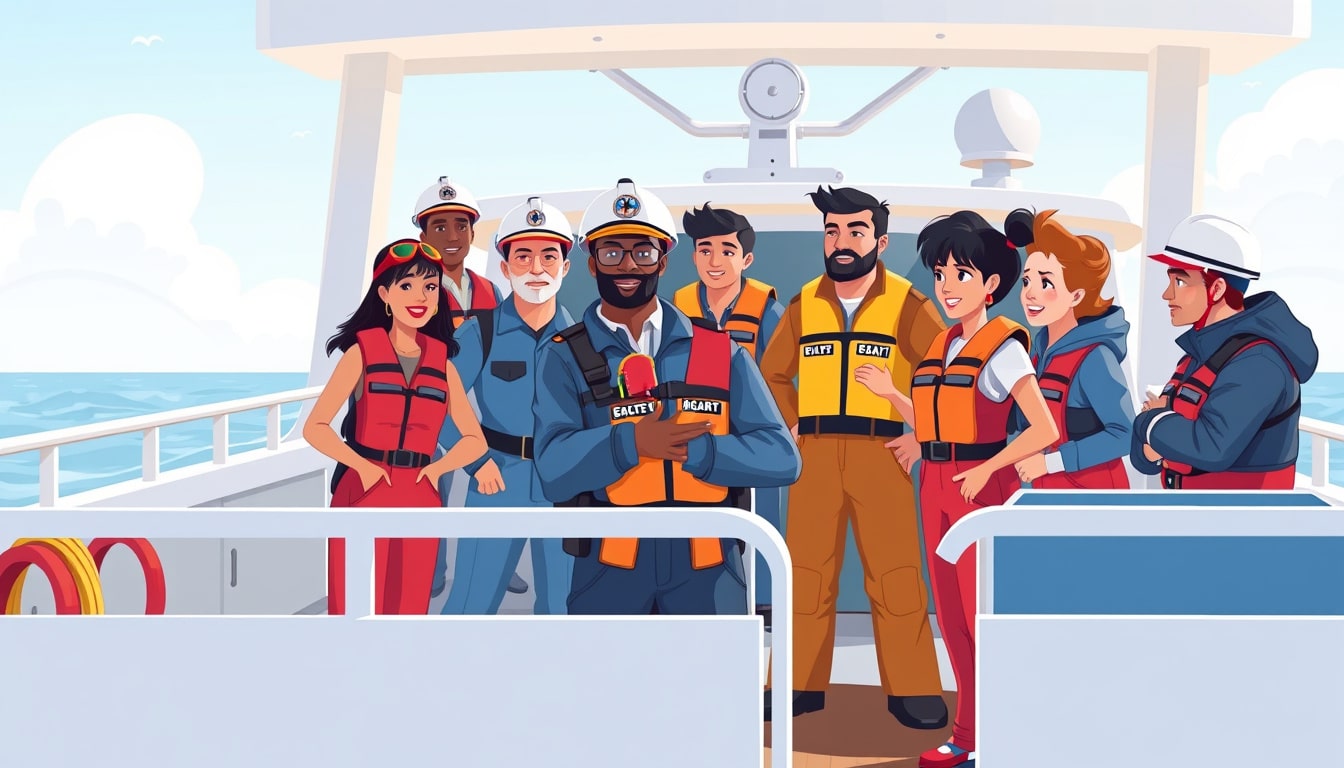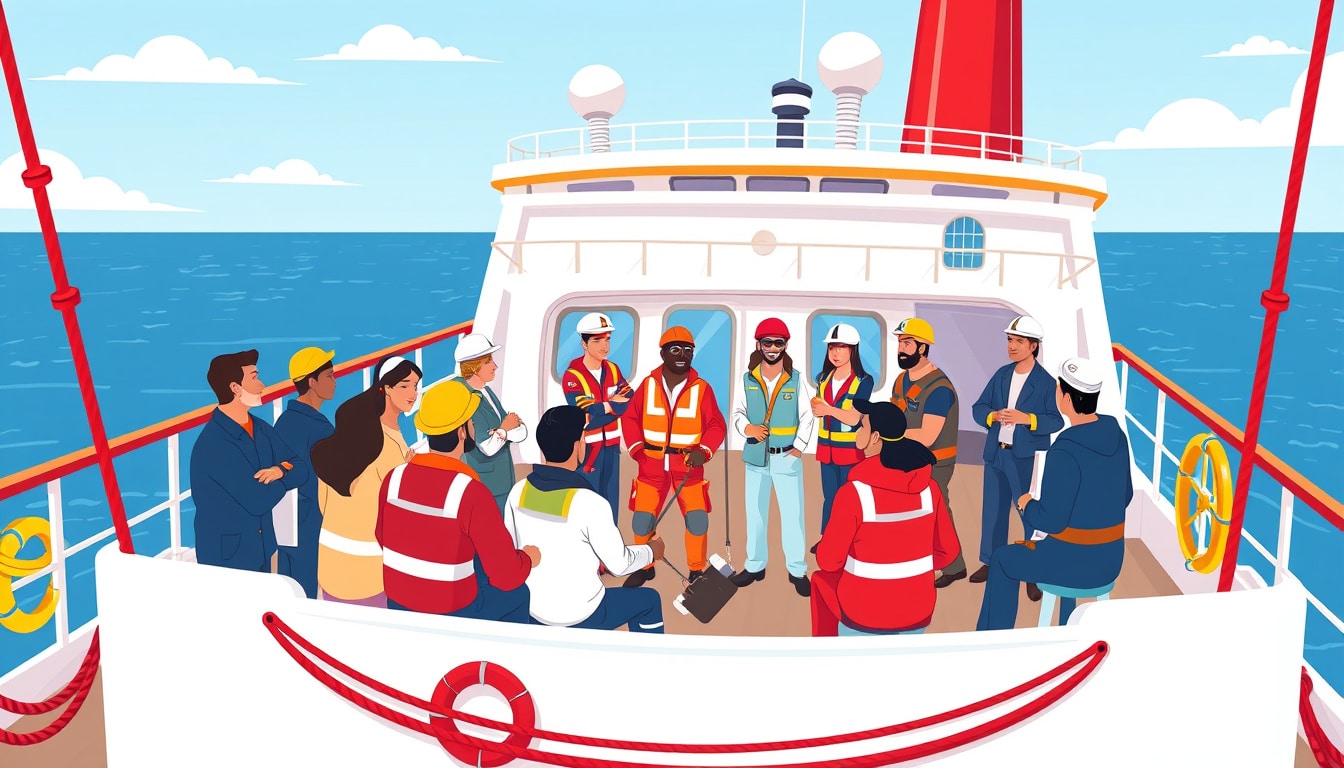In the fast-paced world of maritime operations, ensuring the safety and security of vessel crews and cargo has never been more critical. As a deckhand, the firsthand experiences and responsibilities you encounter at sea are invaluable, but understanding the broader picture of maritime security is equally essential. The journey from deckhand to a confident crew member hinges on one crucial component: Proficiency in Security Awareness (PSA). This article explores the role of a deckhand in maritime security, the significance of PSA training, and how it can transform your career in the maritime industry.
Learn more about our Courses here!
Key Takeaways
- Deckhands play a crucial role in maintaining maritime security.
- Proficiency in Security Awareness (PSA) is essential for all crew members.
- Training in PSA enhances overall operational effectiveness in maritime settings.
- Real-world applications of PSA training can mitigate security threats at sea.
- Transitioning from deckhand to confident crew requires a commitment to PSA education.
Understanding the Role of a Deckhand in Maritime Security
In the vast and dynamic world of maritime operations, the role of a deckhand extends far beyond the basic responsibilities of managing the vessel and maintaining safety protocols. A deckhand’s contribution plays a pivotal role in enhancing maritime security, particularly when it comes to the concept of proficiency in security awareness (PSA). Understanding this connection is crucial for anyone aspiring to elevate their career from a mere deckhand to a confident, well-rounded crew member. The training and knowledge encompassed in PSA equip deckhands to identify potential security threats early and respond effectively. As they gain proficiency, deckhands not only strengthen their own skills but also contribute significantly to a culture of safety aboard the vessel. In a time when maritime security is more important than ever, cultivating robust skills in PSA can be the defining factor that transforms a deckhand into a key asset for their crew and the maritime industry as a whole.
The Importance of Proficiency in Security Awareness (PSA)
In the maritime industry, the transition from deckhand to confident crew revolves significantly around one essential element: Proficiency in Security Awareness (PSA). As vessels navigate a world of increasing threats, understanding security protocols is not just a training requirement but a critical survival skill. PSA equips every crew member with the knowledge to recognize potential risks and respond effectively, fostering a secure environment onboard. This proficiency helps mitigate risks from piracy, smuggling, or onboard mishaps, ultimately enhancing crew cohesion and operational effectiveness. By instilling confidence through rigorous training in PSA, organizations not only protect their assets and personnel but also cultivate a culture of vigilance and responsibility, essential for thriving in today’s maritime landscape.
Learn more about our Courses here!
Real-World Applications of PSA Training in Maritime Operations
In the dynamic realm of maritime operations, from deckhand to confident crew: proficiency in security awareness (PSA) makes the difference. The application of PSA training goes far beyond just meeting regulatory requirements; it instills a culture of safety and vigilance onboard vessels. For instance, deckhands equipped with PSA skills can effectively identify potential security threats, enabling them to respond promptly and appropriately, which can be critical in preventing incidents. Moreover, the real-world applications of this training are evident during drills, where crew members practice emergency protocols that enhance their ability to manage real-life situations. This training prepares them to handle piracy threats, unauthorized access, and environmental hazards, ensuring that the entire team operates cohesively. Ultimately, investing in PSA training not only elevates individual competencies but also reinforces the overall security posture of maritime operations, fostering confidence in every crew member.
How to Transition from Deckhand to a Confident Crew Member through PSA
Transitioning from a deckhand to a confident crew member requires more than just hands-on experience; it involves building a solid foundation of skills that enhance your capabilities and awareness. One of the best strategies to achieve this transformation is through Proficiency in Security Awareness (PSA) training. This training equips you with essential knowledge about safety protocols, emergency procedures, and overall maritime security measures. By engaging with PSA resources, you not only increase your understanding of your responsibilities but also develop the confidence to act decisively in critical situations. Ultimately, mastering these skills allows you to move from deckhand to confident crew member, ensuring you are an invaluable asset to your team, ready to contribute effectively to both daily operations and emergency responses.
À Propos de Nous
Académie Maritime Virtuelle (VMA) is a leading provider of online maritime education and training, offering a wide range of courses designed to meet the needs of the global maritime industry. With a commitment to quality and innovation, Virtual Maritime Academy is dedicated to preparing seafarers and maritime professionals for success in their careers. Now a DNV Certified Maritime Training Provider, the academy upholds the highest standards of excellence in training and education.






